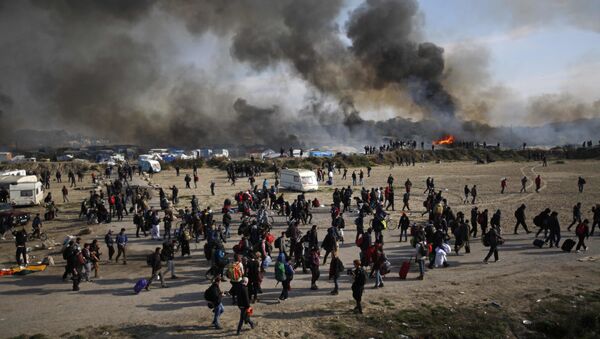Gilles Lebreton, head of the French National Front delegation to the European Parliament, told Sputnik that “immigration is a big existential problem to manage” for the European Union (EU).
"On the one hand, Juncker and Avramopoulos consider massive immigration inevitable and wish to adapt by organizing the reception and distribution of migrants. On the other hand, Poland, Hungary, Austria and now Italy no longer want immigration. Angela Merkel is today herself forced to deal with this second current, which is also becoming powerful in Germany," Lebreton said.
According to him, the European Union needs to revise its migration policy if it hopes to weather the ongoing crisis, though it remains to be seen when Brussels will arrive at this conclusion.
"If the EU wants to survive, I think it is doomed to change its software by tightening its migration policy, but for the moment the Eurocracy in Brussels is still clinging to its mad immigrationism," Lebreton declared.
With the upcoming EU summit looming on the horizon, several of the union’s member states, including Poland, Hungary and Italy, continue to oppose any attempts by Brussels to persuade them to sign an agreement on migration and refugee resettlement.
The new deal touted by the EU leadership would allow countries to handpick refugees or, alternatively, pay another country 30,000 euros for each person that they refuse to take.
The views and opinions expressed by Gilles Lebreton are those of the speaker and do not necessarily reflect those of Sputnik.



